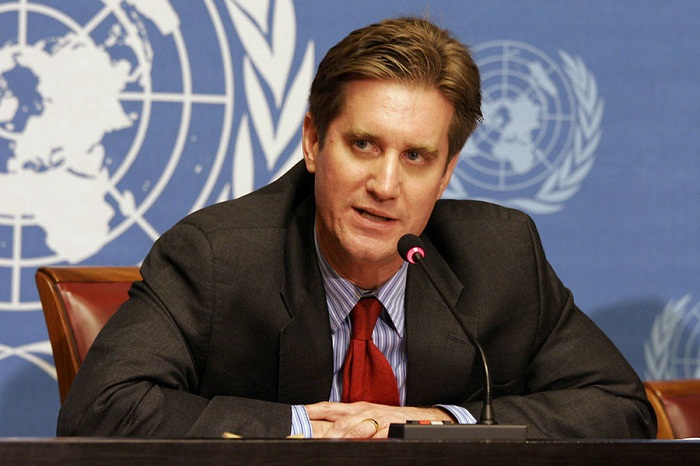“For Turkey, being a hub means, first of all, the TANAP connection with Azerbaijan, and hopefully beyond that, with Turkmenistan, too,” Bryza said. Turkey has a vision of itself as natural gas transportation and trading hub which also includes northern Iraqi gas, as well as eastern Mediterranean gas, he said.
”I don’t think the Turkish government was ever enthusiastic about Turkish Stream,” Bryza said. “The Turkish government is interested in attracting all these diversified supplies of natural gas to Turkey to reduce its own dependence on more expensive Russian gas.”
So, when President Putin suddenly announced his plans for Turkish Stream without coordinating them with Turkey, he made it difficult for a lot of people in the Turkish government, who simply didn’t want to be rude and say “no”, the former ambassador said.
In simple terms, TANAP is crucially important for Turkey and Turkish Stream is not, he said.
TANAP project envisages transportation of gas of Azerbaijan’s Shah Deniz field from the Georgian-Turkish border to the western borders of Turkey.
TANAP’s initial capacity is expected to reach 16 billion cubic meters of gas per year. Around six billion cubic meters of this gas will be delivered to Turkey and the rest of the volume to Europe. Turkey will obtain gas in 2018, while Europe will get it in early 2020 after the Trans Adriatic Pipeline (TAP) is constructed.
BP and the TANAP consortium signed a shareholder agreement March 13, according to which BP will become one of the shareholders of TANAP. The agreement is one of the main documents for BP’s ownership of a stake in the TANAP project.
Following the completion of a legal implementation procedure, TANAP’s shareholders list will be as follows: SOCAR – 58 percent, Botas – 30 percent and BP – 12 percent.
The Turkish Stream gas pipeline designed to bypass Ukraine, replaced the South Stream, which was abandoned because of opposition from the European Union. Negotiations on Turkish Stream have been on since December 2014. Approval of the new project was linked with the expansion of the Blue Stream and giving discounts for the supplied gas. It slowed down the talks, and the intergovernmental agreement wasn’t signed by the time of the next election in Turkey.
More about:
















































